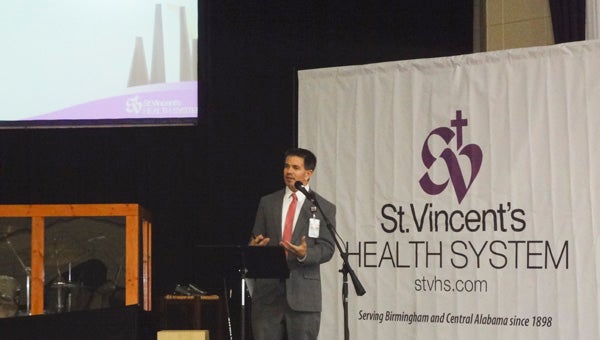Massey talks St. Vincent’s One Nineteen expansion, healthcare changes
Published 1:22 pm Friday, October 9, 2015

Brian Massey, administrative director of business development for St. Vincent’s Health System, talks to South Shelby Chamber of Commerce luncheon attendees Oct. 1 about the St. Vincent’s One Nineteen expansion and changes in the healthcare industry. (Reporter Photo/Emily Sparacino)
By EMILY SPARACINO / Staff Writer
COLUMBIANA – In two more months, local residents will have access to more healthcare options at St. Vincent’s One Nineteen.
Brian Massey, administrative director of business development for St. Vincent’s Health System, spoke at an Oct. 1 South Shelby Chamber of Commerce luncheon about the expansion project at the St. Vincent’s One Nineteen campus that will result in a 40,000-square-foot professional office building with physician office space, an ambulatory surgery center and an urgent care center in December.
Massey said the expansion ties into St. Vincent’s introducing a “clinically integrated system of care” that entails the collaboration of providers and payors, developing and coordinating care that involves collecting and sharing data and lowering costs for patients.
“This is not some far off fantasyland,” Massey said of the system at St. Vincent’s One Nineteen. “This is here now.”
Massey listed reasons for healthcare to change, starting with high national health expenditures.
“No sector of our economy comes close to this amount of spending,” Massey said. “It’s unsustainable.”
He also listed unsettled national health policy and lower preventive care spending as reasons driving healthcare change.
Massey said 45 percent of Americans suffer from preventable chronic disease, and only 3 percent of spending is on prevention and public health programs.
“As providers, how we are reimbursed drives how we deliver care,” he said.









